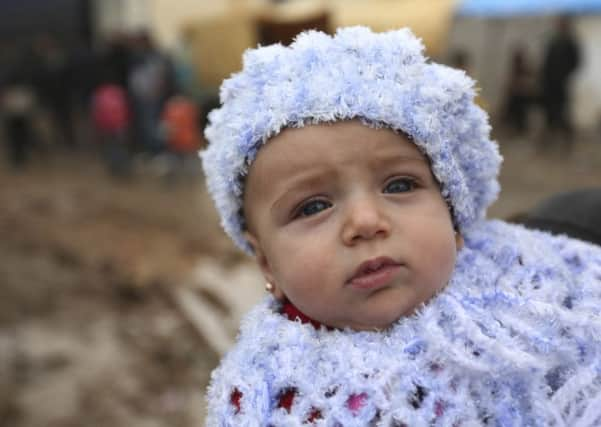Edward Spiers: Saudi threat raises the stakes in Syria


It has taken some time to gain the requisite intelligence and to target rebel strongholds effectively, but Russian air power, assisted by Hezbollah ground forces and Iranian-backed militias, has enabled Assad’s forces to move onto the offensive in both the northern and southern areas of Syria.
During January, Assad’s army cleared rebels from most of their gains in the mountainous region of Latkia province, including the last rebel-held town of Rabia, on an important supply route to Turkey.
Advertisement
Hide AdAdvertisement
Hide AdMurad Margoshvili, an ethnic Chechen commander who uses the alias “Abu Walid al Shishani” and heads an embattled Islamist faction in Latakia province, bewailed the lack of support from other militants. He and his men, he complained, were “in a Roman wrestling ring where the gladiators fight and the rest of the Islamic world spectates”.
Assad’s forces have also moved swiftly northwards, attacking rebel positions in the northern province of Hams, and advancing towards the city of Aleppo.
In three days, they accomplished what they had failed to do in three years, namely lift the sieges of two Alawite towns of Nubul and Zahraa.
The Levant Front rebel group admitted that their sieges had foundered after three days of intense bombardments, involving numerous sorties by Russian aircraft (the “500 raids” claimed could be an exaggeration to excuse their defeat).
Advertisement
Hide AdAdvertisement
Hide AdAll these gains, including the pounding of Chechen militants, serve the purposes of President Vladimir Putin, and provide Assad’s emissaries with every incentive to delay the Geneva peace talks while further gains are made on the ground.
John Kerry, US Secretary of State, rightly blamed the Syrian government and its Russian allies for stalling the negotiations but could do nothing about it. Sergei Lavrov, the Russian foreign minister, insisted that the aerial bombardments would continue. “Russian airstrikes will not cease until we really defeat terrorist organisations like Jabhat al-Nusra (an al-Qaida affiliate),” he stated.
Assad’s units are also advancing in the centre and south of Syria: last December besieged rebel forces abandoned their last suburb in Syria’s third city of Homs, and outside Damascus, in the opposition stronghold of Eastern Ghouta, Assad’s forces recaptured the air base of Marj al-Sultan, while an airstrike killed the commander of the opposition army, Zahran Alloush, on Christmas Day.
Consolidating these gains was the recapture of Sheikh Maskin, after weeks of fierce fighting, on January 25. A key southern town, Sheikh Maskin controlled several supply routes from Jordan across Deraa province, 70 per cent of which was once rebel controlled. Now the rebel forces, scattered by aerial attacks, are split between eastern and western Deraa.
Advertisement
Hide AdAdvertisement
Hide AdAll these government gains have come at a terrible price: after a five-year civil war, a quarter of a million people have died, millions have fled as refugees, the economy is dire and much of Syria’s infrastructure destroyed. Assad’s army is dependent on Hezbollah and Iranian militias; its reliance on Russian air power is all too apparent.
Assad’s forces are probably too weak to sweep across all of Syria but they could secure the principal cities, and access routes from the north to the south, so creating the basis of a mini-Alawite state in any bargaining for a partitioned state.
However, the Saudi offer to insert ground forces, probably in support of some rebel units against IS, marks a very significant escalation. Emboldened by their experience in Yemen, the Saudis have not indicated how many troops they would deploy, or where they might do so, but their defence minister is in discussion with his US counterpart about how these forces could operate in Syria.
While the threat of Saudi intervention might prompt Putin and Assad to reconsider their attitude towards the peace talks, the operational risks of a Saudi intervention are bound to raise the stakes in the conflict, both locally in respect of clashes with other forces and regionally in rivalry with a resurgent Iran, now revived by the lifting of international sanctions.
Edward M Spiers is Professor of Strategic Studies at the University of Leeds.